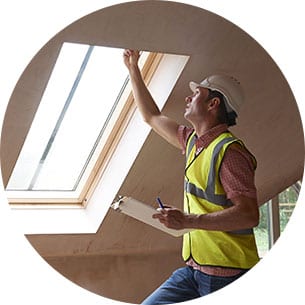Are you a DIY enthusiast who loves to tackle projects around your home? Have you ever thought about doing your own home inspection? While it may seem like a great idea to save money, is it really worth the risk? In this article, we will explore the world of DIY home inspections and answer the question, “Can you do it yourself?”
Introduction
A home inspection is a crucial step in the home buying process. It is designed to identify any potential problems with the property before you make an offer. However, home inspections can be expensive, and some homebuyers may consider doing it themselves to save money.
DIY home inspections involve conducting a thorough examination of a property without the help of a professional home inspector. While it may seem like a good idea, it’s important to understand that home inspections require a certain level of expertise and training.
DIY Home Inspections: Can You Do It Yourself?
The short answer is, yes, you can do a DIY home inspection. However, it’s important to understand that a DIY inspection will not be as thorough or comprehensive as a professional inspection.
If you decide to do a DIY inspection, here are some of the things you should consider:
- Educate yourself on what a home inspection entails
- Be prepared to spend several hours inspecting the property
- Take detailed notes and pictures
- Use a home inspection checklist to ensure you don’t miss anything
- Understand that a DIY inspection may not be sufficient for negotiating repairs or price reductions
Pros and Cons of DIY Home Inspections
Before deciding whether to do a DIY home inspection, it’s important to weigh the pros and cons. Here are some factors to consider:
Pros
- Cost savings: One of the biggest advantages of a DIY home inspection is the cost savings. Professional inspections can cost several hundred dollars, while a DIY inspection is essentially free.
- Familiarity with the property: Another advantage is that you are likely more familiar with your own property than a professional inspector would be. You may already be aware of some of the potential issues that a professional inspector would look for.
- Flexibility: With a DIY inspection, you can take as much time as you need to thoroughly inspect the property. You can also schedule the inspection at a time that’s convenient for you, without having to work around the schedule of a professional inspector.
Cons
- Lack of expertise: One of the biggest disadvantages of a DIY inspection is the lack of expertise. Unless you’re a trained professional, you may miss potential problems that a professional inspector would catch.
- Liability: If you miss a major problem during a DIY inspection, you could be held liable for any damages that result. A professional inspector carries liability insurance, which provides protection for both the inspector and the homeowner.
- Lack of objectivity: A DIY inspection may be influenced by personal biases or emotions, which can cloud your judgment and lead to missed issues or overreaction to minor problems.
- Inability to negotiate repairs or price reductions: If you find problems during a DIY inspection, you may not have the leverage to negotiate repairs or price reductions with the seller, since you are not a professional inspector.
Common FAQs About DIY Home Inspections
Is it legal to do a DIY home inspection?
Yes, it is legal to do a DIY home inspection. However, it’s important to understand that a DIY inspection may not be sufficient for negotiating repairs or price reductions.
Can a DIY inspection replace a professional inspection?
No, a DIY inspection cannot replace a professional inspection. Professional inspectors have the training and expertise necessary to identify potential problems that may be missed during a DIY inspection.
How long does a DIY home inspection take?
A DIY home inspection can take several hours, depending on the size of the property and the level of detail you’re examining.
What should I look for during a DIY home inspection?
During a DIY home inspection, you should look for potential problems with the roof, foundation, electrical system, plumbing, and HVAC system. You should also examine the property’s exterior and interior for signs of damage or wear and tear.
How do I know if I missed something during a DIY inspection?
It’s essential to remember that a DIY inspection is not as comprehensive as a professional inspection. If you’re unsure about something, it’s always best to consult with a professional.
Is it worth it to do a DIY home inspection?
While a DIY home inspection may save you money in the short term, it may not be worth the risk in the long term. A professional inspection can provide a comprehensive assessment of the property’s condition, which can help you avoid costly repairs and potential safety hazards down the road.
Conclusion
In conclusion, while it is legal to do a DIY home inspection, it’s important to understand the limitations of a DIY inspection. Unless you’re a trained professional, you’re likely to miss potential problems that a professional inspector would catch. A professional inspection may cost more upfront, but it can save you money in the long run by identifying potential problems before they become major issues.
If you’re considering a DIY inspection, be sure to educate yourself on what a home inspection entails, take detailed notes and pictures, and use a home inspection checklist to ensure you don’t miss anything. However, keep in mind that a DIY inspection may not be sufficient for negotiating repairs or price reductions.
In the end, it’s up to you to decide whether a DIY home inspection is worth the risk. But if you want to ensure that your home is safe and free of potential problems, it’s always best to hire a professional inspector.




